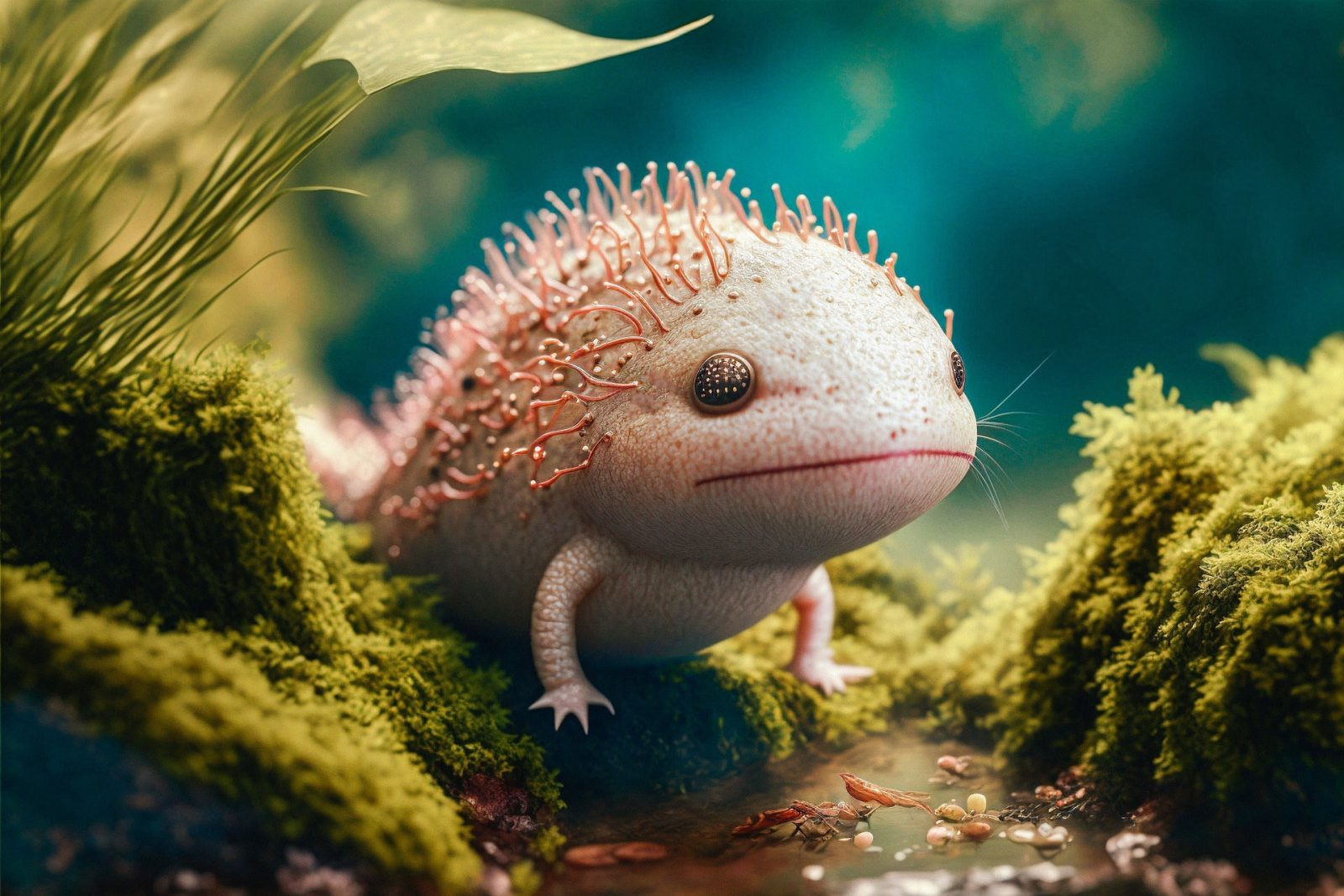
Contents
How Long Does Axolotl Live? – Introduction:
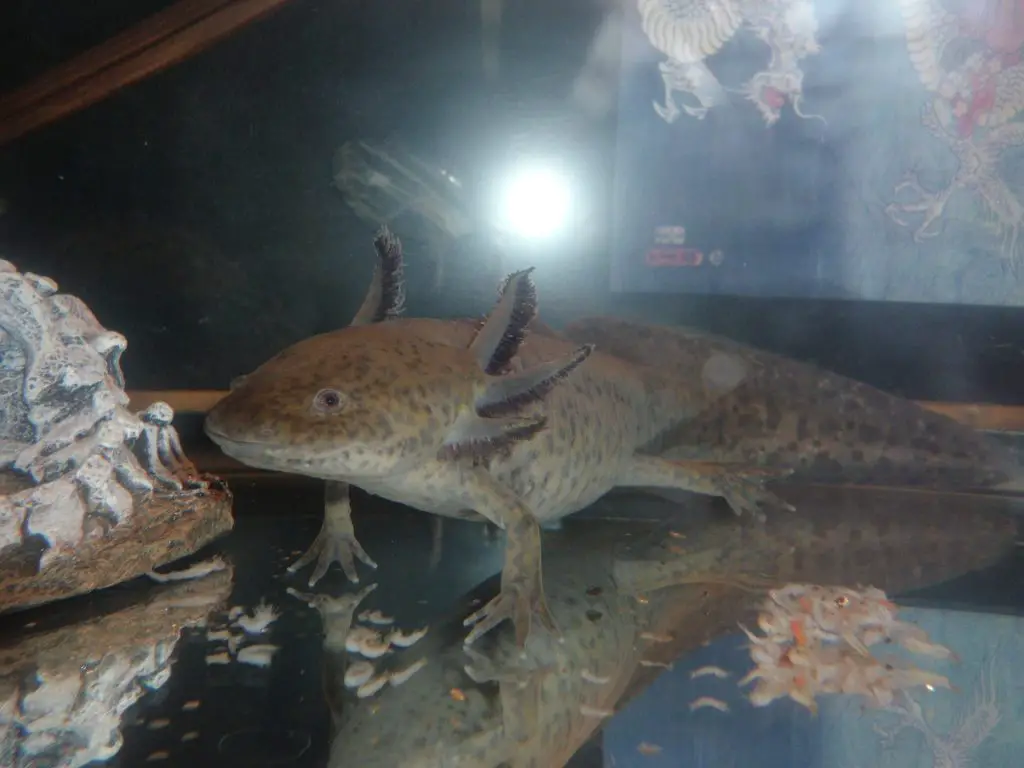
The mesmerizing and unique axolotl, often referred to as the Mexican walking fish, has captivated the hearts of amphibian enthusiasts worldwide. Many wonder how long these intriguing creatures can survive with their adorable appearance and incredible regenerative abilities. In this article, we will explore the lifespan of axolotls and the factors that influence their longevity.
Axolotl Lifespan How Long Do They Live || axolotl lifespan in the wild || axolotl lifespan as a pet: https://m.youtube.com/watch?v=rDSxxQoi6RA&pp=ygUbSG93IExvbmcgRG9lcyBBeG9sb3RsIExpdmU_
A Natural Wonder:
The axolotl (Ambystoma mexicanum) is a type of salamander native to the ancient lake complex of Xochimilco, Mexico. Unlike most amphibians, these creatures retain their larval characteristics throughout their lives, never undergoing complete metamorphosis. Understanding their lifespan requires a closer look at their unique biology.
Average Lifespan:
Several factors come into play when it comes to the axolotl’s lifespan. These creatures can live up to 10-15 years in captivity on average. However, there have been exceptional cases where they have been known to live beyond 20. While 15 years may sound relatively short, it is important to remember that their wild counterparts have a shorter lifespan of around 5-7 years due to various ecological factors.
Genetic Factors:
Genetics plays a crucial role in determining an axolotl’s lifespan. Certain genetic traits inherited from their parents can influence their longevity. Additionally, axolotls possessing genetic mutations, such as melanoid or leucistic variations, tend to have shorter lifespans than their wild-type counterparts.
Environmental Factors:
Apart from genetic factors, the environment in which axolotls are kept significantly impacts their lifespan. Suitable living conditions are vital to their well-being and longevity. Maintaining ideal water temperature (around 60-68°F or 15-20°C), proper water quality, adequate space, and a suitable diet can all contribute to their overall health and lifespan.
Health and Care:
Axolotls are generally hardy creatures, but they can fall prey to various health issues, which may impact their lifespan. Common problems include fungal and bacterial infections, parasitic infestations, and metabolic disorders. Regular veterinary check-ups, maintaining clean tanks, and offering a balanced diet can help minimize these risks and extend their lifespans.
Regeneration as a Lifesaver:
One of the most intriguing aspects of axolotls is their remarkable regenerative abilities. They can regrow complex body parts, such as limbs, spinal cord, heart, and even portions of their brain. This incredible regenerative power allows them to heal injuries and combat age-related deterioration, which may contribute to their extended lifespan.
One of the most fascinating features of axolotls is their ability to regenerate body parts damaged or lost due to injury or disease. Unlike most amphibians, which undergo metamorphosis into a terrestrial form, axolotls remain in their aquatic state throughout their lives. This unique trait allows them to regrow complex body parts, including limbs, spinal cords, hearts, and even portions of their brain.
The regenerative capabilities of axolotls are remarkable and have captured the attention of scientists worldwide. The ability to regrow these complex structures helps them heal injuries and potentially combats age-related deterioration. This ability may contribute to their extended lifespan compared to other amphibians and pets.
By understanding the various elements that influence their lifespan, we can ensure the well-being of these extraordinary amphibians. Whether you’re fascinated by their regenerative abilities or enjoy observing their expert swimming skills, taking care of an axolotl is a rewarding experience that allows you to witness the wonders of nature up close. So dive into the world of axolotls and give these amazing creatures the care they deserve! Caring for Our Extraordinary Amphibians: A Dive into the World of Axolotls
If you’re looking for a pet that will capture your heart and ignite your curiosity, look no further than the axolotl. These unique creatures offer a captivating experience for pet owners and have enthralled scientists worldwide with their regenerative capabilities. From regrowing limbs to repairing spinal cords and even portions of their brain, axolotls possess an extraordinary, truly remarkable ability.
Regeneration: A Marvel of Nature
One of the most fascinating aspects of axolotls is their ability to regenerate complex structures. Whether they lose a limb in a scuffle or sustain an injury to their spinal cord, these amphibians can fully repair and regrow these essential body parts. This regenerative prowess helps them heal injuries and potentially combats age-related deterioration, contributing to their extended lifespan compared to other amphibians and pets.
Taking care of an axolotl is not difficult, but it requires some attention to ensure their well-being and longevity. These creatures are generally hardy, but just like any living being; they can face health challenges that may impact how long they live. Common problems include fungal and bacterial infections, parasitic infestations, and metabolic disorders. However, there are several steps you can take to minimize these risks and extend their lifespans.
Maintaining clean tanks is crucial for the overall health of your axolotl. These creatures are quite sensitive to changes in water quality, so it’s important to monitor the parameters regularly. A good filtration system will help keep the water clean by removing debris and harmful substances. Regular partial water changes can also go a long way in maintaining ideal conditions for your axolotl.
Feeding your axolotl a balanced diet is another key aspect of their care. These amphibians are carnivorous and should be fed a diet primarily consisting of high-quality pellets or frozen foods designed for them. Avoid overfeeding as it can lead to obesity, which may reduce their lifespan.
Creating the Perfect Habitat
To ensure the well-being and longevity of your axolotl friend, it’s crucial to provide them with an environment that mimics their natural habitat. These aquatic creatures are native to lakes and canals in Mexico, so recreating their home is essential. Invest in a spacious tank with plenty of room for them to swim around comfortably. It’s also important to maintain proper water temperature and quality. Axolotls prefer cooler waters between 60-64°F (15-18°C), so a reliable aquarium heater or chiller might be necessary depending on your climate.
Meeting Their Dietary Needs
Like any pet, axolotls require a balanced diet to thrive. In the wild, they feed on small aquatic creatures such as insects, worms, and small fish. Replicating this diet in captivity is crucial for their health and well-being. Offer protein-rich live or frozen foods such as bloodworms, brine shrimp, and daphnia. However, it’s important to ensure that the food is appropriately sized and doesn’t pose a choking hazard. Avoid feeding them with your hands, as they might mistake your fingers for food!
Regular Vet Visits
Just like any pet, regular veterinary check-ups are essential for axolotls. Find a veterinarian specializing in exotic animals or amphibians to ensure you provide the best care for your little friend. They can guide proper nutrition and water quality testing and help identify potential health issues early on.
Regular veterinary check-ups are essential for keeping your axolotl in top shape. A veterinarian specializing in exotic pets will have the knowledge and expertise to identify potential health issues early on. They can advise on maintaining proper water quality, suggest suitable medications if needed, and offer guidance on the best diet for your axolotl.
Maximizing Lifespan Through Genetic Factors
While axolotls have the potential for an extended lifespan compared to other pets, there are genetic factors to consider. Some axolotls may naturally have shorter lifespans due to inherited traits or genetic predispositions. However, you can significantly increase their lifespan by being mindful of their lineage and selecting healthy specimens with no known genetic issues. Doing thorough research and consulting with experienced breeders before bringing an axolotl home is always a good idea.
Witnessing the Wonders of Nature Up Close
Whether you’re amazed by their regenerative abilities or find joy in observing their graceful swimming skills, caring for an axolotl is a rewarding experience that allows you to witness the wonders of nature up close. These extraordinary creatures offer so much more than just being a pet; they are living miracles that inspire awe and curiosity
So don’t wait any longer—dive into the world of axolotls and give these incredible creatures the care they deserve! With proper attention to their habitat, diet, regular vet visits, and consideration of genetic factors, you can provide them with a fulfilling life and enjoy the unique companionship they offer. Start your axolotl adventure today and be prepared to be captivated by these mesmerizing amphibians.
Conclusion:
With its unique characteristics and regenerative capabilities, the axolotl remains fascinating to study and care for. While they may not live as long as some other pets, their lifespan can be significantly extended with proper care, attention to genetic factors, and a healthy environment. By understanding the various factors that influence their longevity, we can ensure their well-being and maximize the lifespans of these extraordinary amphibians.
More Links :
Unfertilized Axolotl Eggs: https://adoptanim.com/unfertilized-axolotl-eggs/
Is an Axolotl a Fish? Understanding the Differences between Axolotls and Fish in ’23! https://adoptanim.com/is-an-axolotl-a-fish/

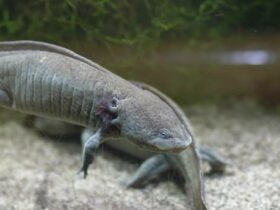
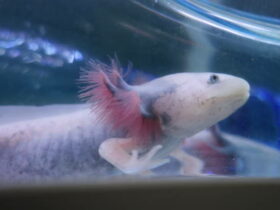
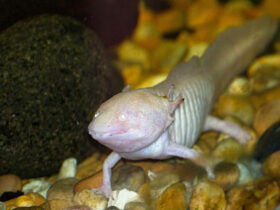
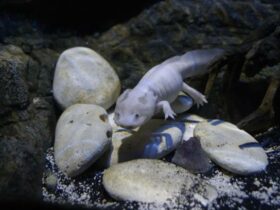
Leave a Reply